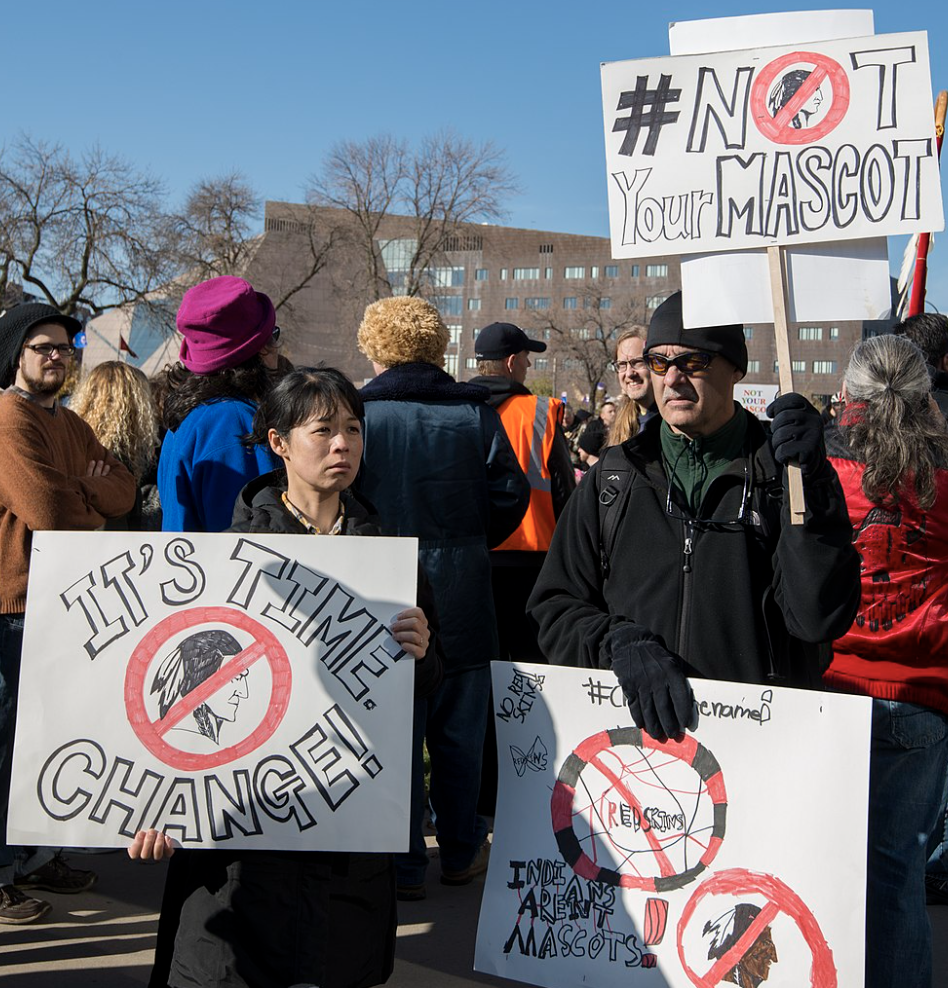
- Details
- By Levi Rickert
President Donald Trump took to social media on Sunday, threatening to block a new stadium deal for Washington’s NFL team unless it reverts to its former name, the Redsk!ns—a term widely considered offensive to Native Americans.
The term "Redsk!ns" is widely regarded by Native Americans as a racial slur, comparable in offensiveness to the "N-word" used against African Americans. Native American leaders argue that mascots based on Native themes do not honor their heritage—instead, they believe such imagery dehumanizes and perpetuates harmful stereotypes about their communities.The basis for this opposition goes beyond the racist nature of mascots, according to the Reclaiming Native Truth report, released in June 2018.
On Sunday, Trump also called on Cleveland’s Major League Baseball team to return to its former name, the Indians, claiming there is “a big clamoring for this” as well. Both franchises—now known as the Washington Commanders and Cleveland Guardians—adopted their current names ahead of the 2022 season and have stated they have no plans to reverse the changes.
Trump argued that the Commanders would be "much more valuable" under their previous name. “I may put a restriction on them that if they don't change the name back to the original ‘Washington Redskins,’ and get rid of the ridiculous moniker, ‘Washington Commanders,’ I won't make a deal for them to build a stadium in Washington,” he said on his social media platform.
After the name change in 2020, the Washington franchise took the name Commanders in 2022 after two years as the Washington Football Team. Snyder sold the franchise for a little more than $6 billion—a record amount for North American sports—in July 2023 to a group of business franchise owners, including National Basketball Association Hall of Famer Magic Johnson.
Native American leaders and organizations have coinsistnely spoken out about the effort to revitalize the team name, including the National Congress of American Indians (NCAI), Illuminative, and other local leaders in the Washington-Maryland-Virginia area.
More Stories Like This
Native News Weekly (August 25, 2024): D.C. BriefsScope Narrowed, Report Withheld: Questions Mount Over Michigan Boarding School Study
Zuni Youth Enrichment Project Announces Family Engagement Night and Spring Break Youth Programming
Next on Native Bidaské: Leonard Peltier Reflects on His First Year After Prison
Deb Haaland Rolls Out Affordability Agenda in Albuquerque
Help us defend tribal sovereignty.
At Native News Online, our mission is rooted in telling the stories that strengthen sovereignty and uplift Indigenous voices — not just at year’s end, but every single day.
Because of your generosity last year, we were able to keep our reporters on the ground in tribal communities, at national gatherings and in the halls of Congress — covering the issues that matter most to Indian Country: sovereignty, culture, education, health and economic opportunity.
That support sustained us through a tough year in 2025. Now, as we look to the year ahead, we need your help right now to ensure warrior journalism remains strong — reporting that defends tribal sovereignty, amplifies Native truth, and holds power accountable.
 The stakes couldn't be higher. Your support keeps Native voices heard, Native stories told and Native sovereignty defended.
The stakes couldn't be higher. Your support keeps Native voices heard, Native stories told and Native sovereignty defended.
Stand with Warrior Journalism today.
Levi Rickert (Potawatomi), Editor & Publisher


